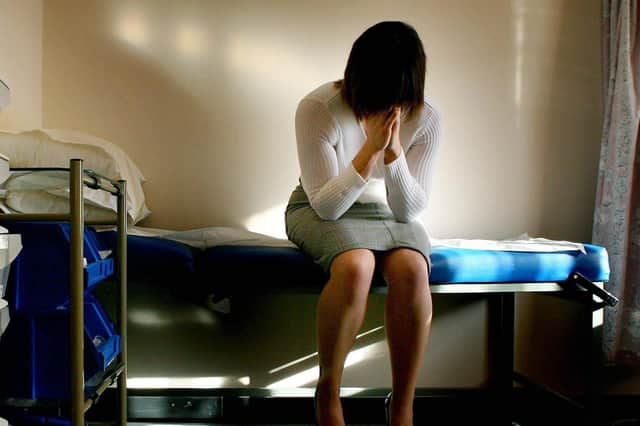Scotland's shocking rape conviction rate means we need to talk about radical legal reform – Tom Wood


To do something about rape we need to be able to talk about it candidly, and that’s difficult. Rape has become a taboo subject, with any debate straying from the orthodoxy shouted down as misogynist.
But we must do something, for the facts are unforgiving. Of 2,342 reports of rape and attempted rape in Scotland last year, there were only 130 convictions.
Advertisement
Hide AdAdvertisement
Hide AdThink about the people behind these appalling figures. Over 2,000 women had the courage to come forward to report this most serious crime, only to have their reports dismissed. Insult to grievous injury.
So what’s going wrong ? First let’s dismiss an old chestnut that police and prosecutors don’t treat rape seriously. This is arrant nonsense.
Apart from murder, there is no more serious crime than rape. Police and prosecutors do their utmost to solve these crimes and have never been better equipped. Special training and interview facilities, dedicated investigators and prosecutors ensure professionalism.
Despite this, conviction rates remain stubbornly low. Why? The answer lies in a single word: evidence, or the lack of it.
In most rape cases, there is little corroborating evidence. In the absence of forensic evidence, cases often come down to ‘she said, he said’. Set against the strict legal definition of rape, juries can find it difficult to establish guilt ‘beyond reasonable doubt’. The number of ‘not proven’ verdicts tells its own story.
A quick fix would seem to be a reduction of the burden of proof in rape cases, perhaps removing the need for corroboration. Thankfully such suggestions are resisted by our legal profession. Any attempt to establish a two-tier justice system is a slippery slope and would almost certainly lead to miscarriages of justice.
Instead, we need to look at our legal definition of rape, to check whether it is still fit for purpose, and ask whether we need to introduce categories of rape.
It’s a controversial subject. Some would contend that all rapes are equal, no matter the circumstances. Fine and well, except this view does not survive a reality check or many juries.
Advertisement
Hide AdAdvertisement
Hide AdSome years ago I was involved in the investigation of two rapes in one week.
One was a late-night attack on a young woman. She was brutally beaten, raped, and left for dead. The other happened after a couple had met on a night out. They had gone back to her flat and went to bed. Some intimacy was consensual but when the woman declined to go further, the man persisted.
In both these cases, a crime had been committed and some would say the sexual element was of equivalence.
But they were not the same and two juries took different views: in the first case, guilty and a life sentence; in the second, not proven.
Most European justice systems have recognised modern realities and introduced several categories of rape, not to devalue the crime, but to give juries more options.
In a time when we are once again focusing on violence against women, we cannot continue to fail so many victims of this most serious crime.
The first step to reform is to start talking about rape.
Tom Wood is a writer and former deputy chief constable
